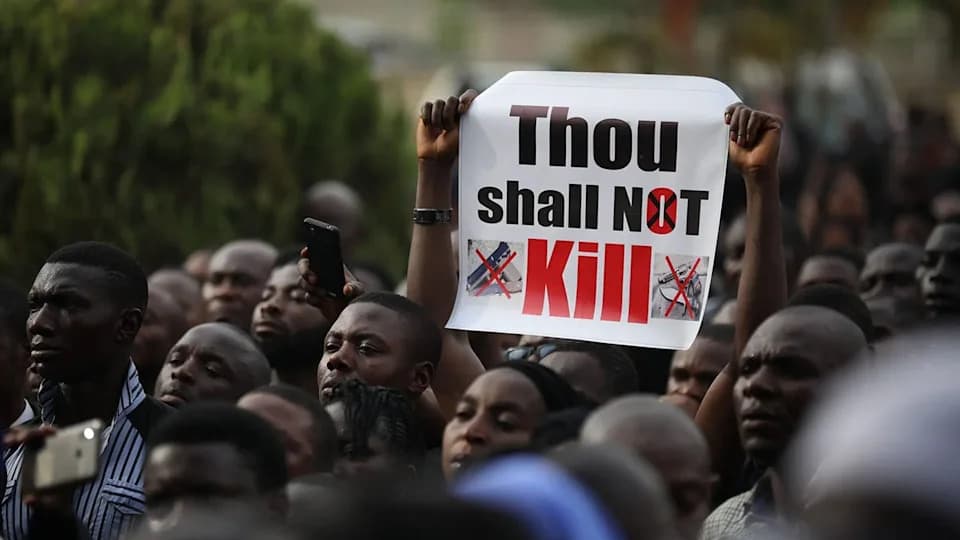Summary: Nigeria has seen repeated mass abductions of schoolchildren in its northern region, carried out by Islamist militants such as Boko Haram and IS-affiliated fighters, as well as criminal bandit gangs that typically demand ransom. At least 1,500 students have been kidnapped since the 2014 Chibok seizure; major incidents include mass takeovers in 2020, 2021 and 2024. The security situation has strained military efforts, prompted changes in Nigeria’s security leadership, and drawn international attention including a U.S. $346 million arms sale.
What to Know About the Abduction of Schoolchildren in Nigeria

Nigeria reports another abduction of schoolchildren in its volatile northern region, continuing a pattern of mass kidnappings that has lasted for years. It is not yet clear who carried out the most recent seizure in Kebbi state. Past kidnappings have been committed by a range of armed actors — from the Islamist militant Boko Haram and a local Islamic State affiliate to loosely organized bandit gangs that often take captives for ransom.
Boko Haram and an Islamic State affiliate
Boko Haram has long been active across much of Nigeria’s north — particularly the northeast — and in neighboring parts of Cameroon, Niger and Chad. The group, whose name is often translated as “books are forbidden,” seeks to impose an Islamic state and rejects Western-style education.
In 2014, Boko Haram drew global attention with the mass abduction of 276 schoolgirls from Chibok. In subsequent years militants have carried out other large-scale kidnappings, and after internal splits many fighters realigned with a local Islamic State affiliate. Combined estimates place fighters in the low thousands, though exact numbers are uncertain.
Bandits and abductions for ransom
Separate from Islamist militants, heavily armed bandit groups operate across northern Nigeria, particularly in the northwest. Authorities say these gangs often include former herders and local criminals who took up arms after violent clashes over shrinking resources. Their primary motive is usually financial: kidnappings for ransom.
Schools have been frequent targets. Attacks often happen at night, with gunmen arriving on motorcycles or disguising themselves in military uniforms before vanishing into vast, under-policed terrain. There is growing concern about operational links between some bandit groups and militant organizations.
Notable incidents and scale
At least 1,500 students have been reported kidnapped since the 2014 Chibok abduction. Notable large-scale incidents include:
- 2014: Chibok — 276 schoolgirls abducted.
- 2018: Yobe state — about 110 schoolgirls abducted from a college.
- 2020: Katsina state — more than 300 boys abducted from a secondary school (released within a week).
- 2021: Zamfara state — over 300 schoolgirls seized in a nighttime raid (released within weeks, reportedly after ransom payments).
- 2024: Kaduna state — 287 students abducted from a government secondary school.
Nigeria’s broader security response
Nigeria’s military has used airstrikes and special operations against militants and bandits, but security forces have also been criticized for mistakes that have harmed civilians. In recent months militants have overrun outposts, used roadside bombs and raided communities, straining the government’s counterinsurgency efforts. President Bola Tinubu has replaced top security chiefs as part of a broader response.
Internationally, the U.S. approved the sale of $346 million in arms intended to help Nigeria fight insurgents and criminal gangs. Political pressure and threats of aid restrictions from some foreign actors have also featured in the diplomatic backdrop; Nigerian authorities have pushed back against accusations that they are failing to protect particular religious groups.
Humanitarian and social impact
The repeated attacks have disrupted schooling, displaced families, and deepened distrust between communities. Children, adults, Christians and Muslims alike have been affected. Humanitarian access and government services remain limited in many of the most-affected areas, leaving vulnerable populations at risk of recruitment, exploitation or repeated violence.
Bottom line: Kidnappings of students in northern Nigeria are carried out by multiple actors with different motives — ideological for some extremist groups and financial for many bandit gangs — and the problem remains a major security and humanitarian challenge.
Help us improve.


























